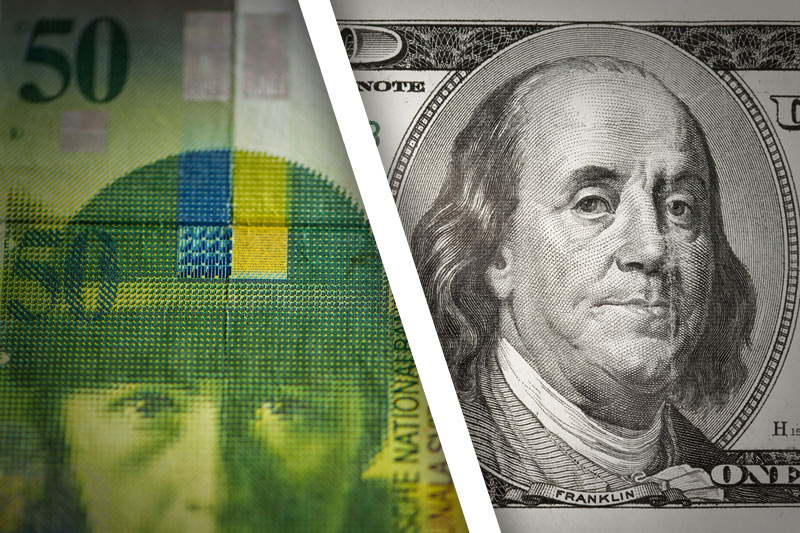Investing.com - The U.S. dollar dropped to a more-than one week low against the Swiss franc on Tuesday, as concerns over global growth eased and hopes for Spanish bailout dampened demand for the safe haven greenback.
USD/CHF hit 0.9285 during European early afternoon trade, the pair’s lowest since October 5; the pair subsequently consolidated at 0.9287, shedding 0.47%.
The pair was likely to find support at 0.9245, the low of September 17 and resistance at 0.9334, the session high.
Risk appetite was boosted after official data on Monday showed that U.S. retail sales rose by a seasonally adjusted 1.1% in September, beating expectations for a 0.8% increase.
The data came after better-than-forecast Chinese trade data over the weekend eased concerns over a slowdown in the world’s second largest economy.
In the euro zone, the ZEW Centre said that its closely watched index of German economic sentiment improved to minus 11.5 in October from September’s reading of minus 18.2. Economists had forecast a reading of minus 15.0 this month.
Investors were looking ahead to Thursday’s European Union summit amid ongoing speculation over whether Spain will formally request a bailout from its euro zone partners in the coming weeks.
A bailout request would trigger a bond buying program by the European Central Bank, aimed at lowering peripheral euro zone borrowing costs.
On Monday, Greek government officials indicated that an agreement with international creditors on deficit reductions is unlikely to be reached before the summit.
The Swissie was fractionally lower against the euro, with EUR/CHF inching up 0.03% to 1.2086.
Later in the day, the U.S. was to release government data on consumer price inflation and industrial production.
USD/CHF hit 0.9285 during European early afternoon trade, the pair’s lowest since October 5; the pair subsequently consolidated at 0.9287, shedding 0.47%.
The pair was likely to find support at 0.9245, the low of September 17 and resistance at 0.9334, the session high.
Risk appetite was boosted after official data on Monday showed that U.S. retail sales rose by a seasonally adjusted 1.1% in September, beating expectations for a 0.8% increase.
The data came after better-than-forecast Chinese trade data over the weekend eased concerns over a slowdown in the world’s second largest economy.
In the euro zone, the ZEW Centre said that its closely watched index of German economic sentiment improved to minus 11.5 in October from September’s reading of minus 18.2. Economists had forecast a reading of minus 15.0 this month.
Investors were looking ahead to Thursday’s European Union summit amid ongoing speculation over whether Spain will formally request a bailout from its euro zone partners in the coming weeks.
A bailout request would trigger a bond buying program by the European Central Bank, aimed at lowering peripheral euro zone borrowing costs.
On Monday, Greek government officials indicated that an agreement with international creditors on deficit reductions is unlikely to be reached before the summit.
The Swissie was fractionally lower against the euro, with EUR/CHF inching up 0.03% to 1.2086.
Later in the day, the U.S. was to release government data on consumer price inflation and industrial production.
